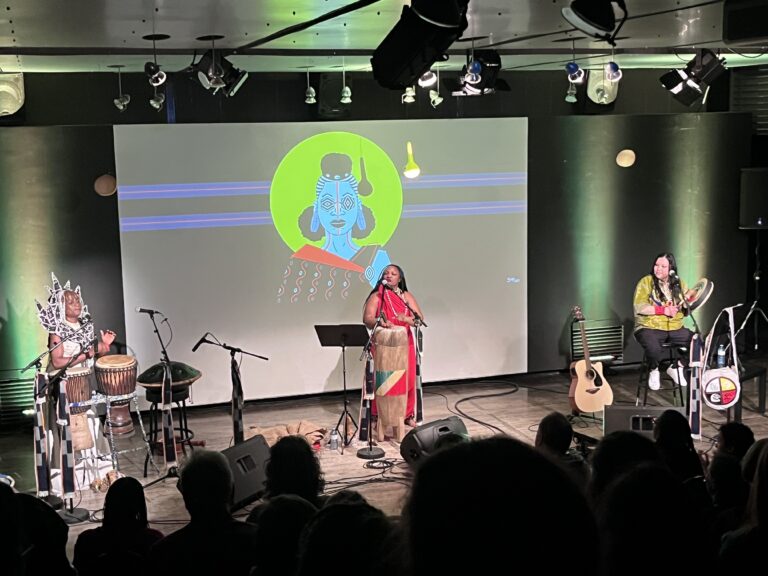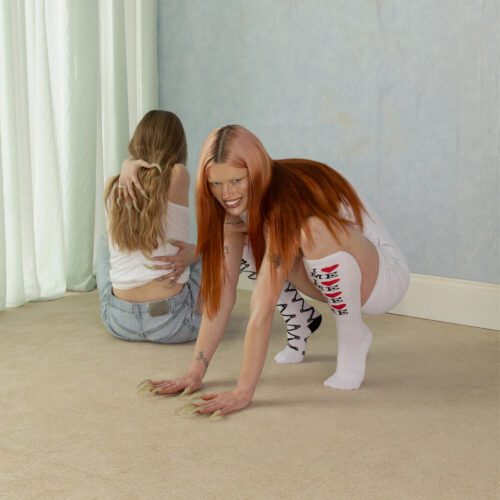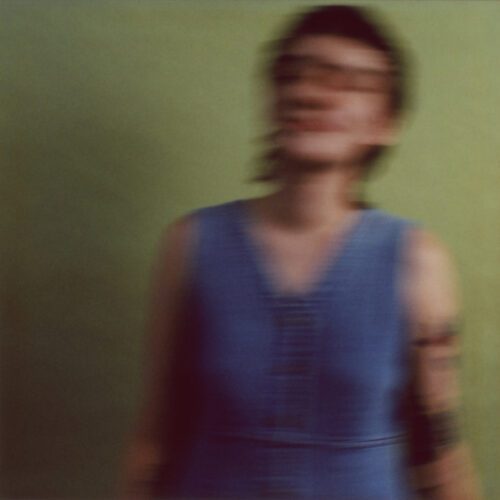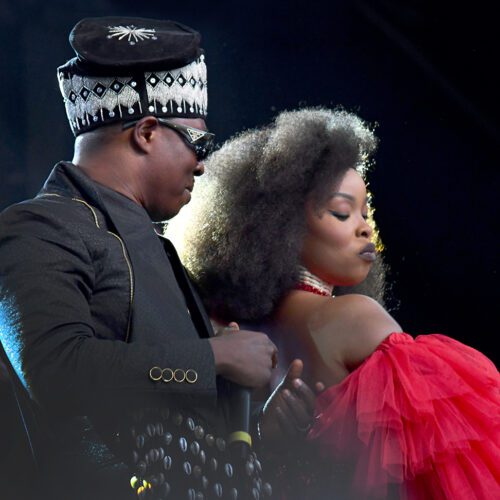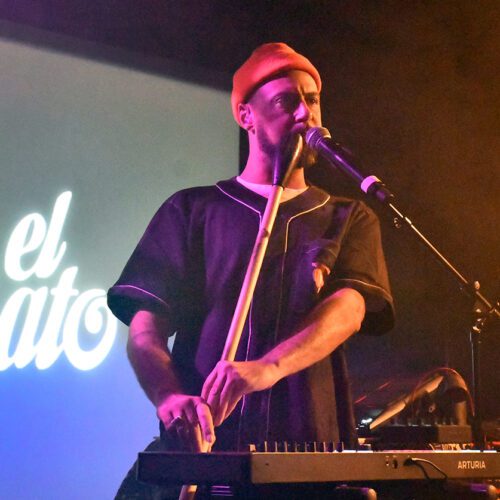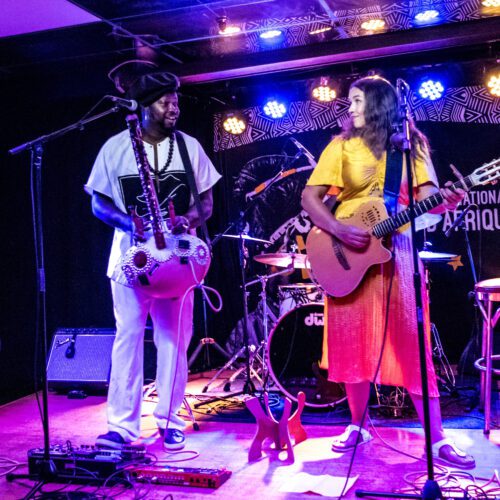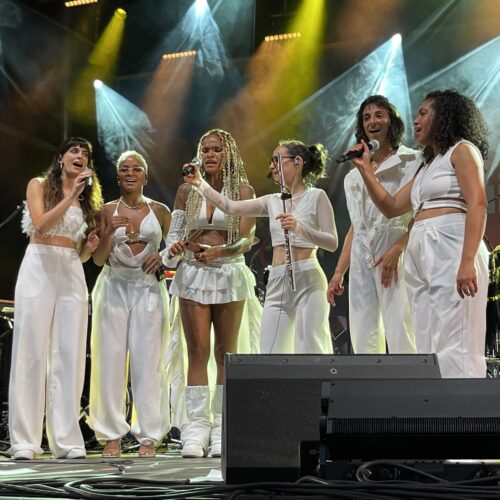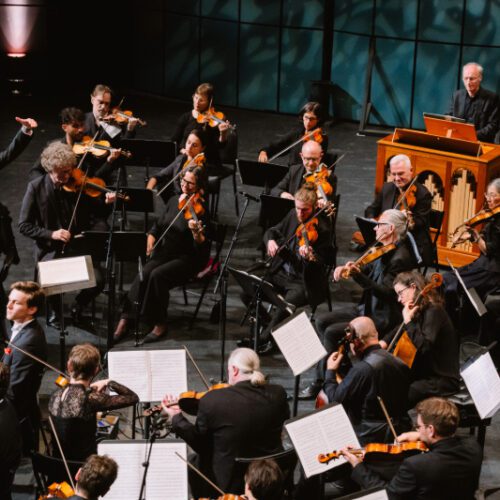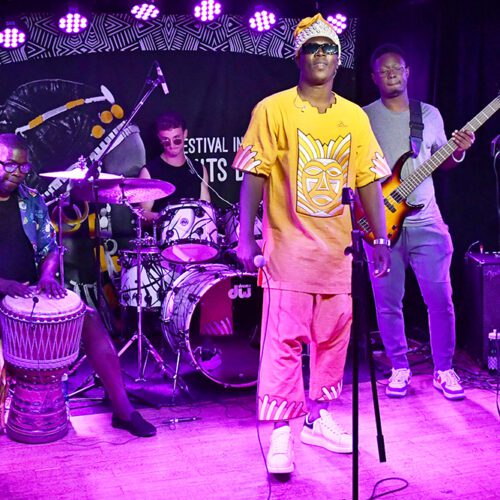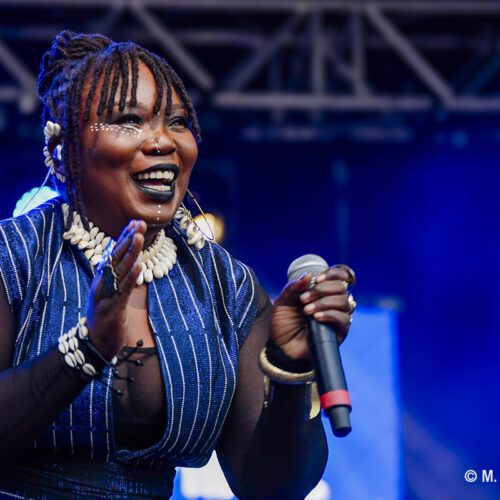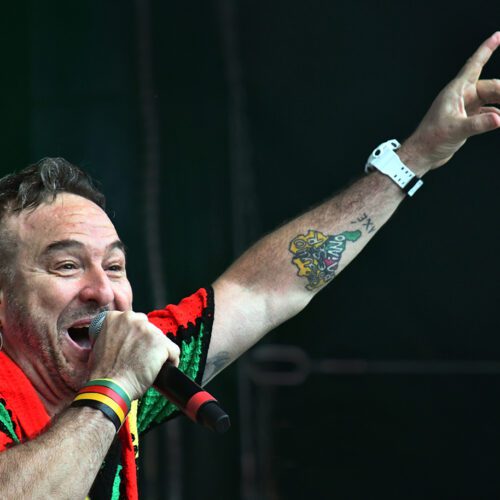For its third edition, Immersion plunged us into a meeting between two African women artists, Dalie Dandala, from Congo-Brazzaville, and Lerie Sankofa, from Côte d’Ivoire, and an Atikamekw woman, Laura Niquay. Together, they shared with us the fruits of their 21-day artistic creation residency, during which they got to know each other, created together and sang in each other’s respective languages.
Under the direction of Fredy Massamba, himself a renowned artist, the art of staging had its place in this show. From dress to dance to the many instruments played by the three women, nothing was left to chance. Each woman took her turn to explain her songs, with the others participating in the chorus or playing an instrument. At times, it was hard to tell whether the language was African or native, as the boundaries were so porous.
Singing, dancing, instruments and their arrangement came naturally, allowing the artists to tell their own stories. Ngoma, percussion, guitar, handpan drum and ahoco: it was all there. Each artist sang in her mother tongue, with occasional bits of French.
“Nzobi, in my language, means ritual or prayer, a bit like vodou,” explains Dalie Dandala before intoning her song in Nyari. She is joined by Lerie on percussion and Laura on backing vocals before dancing away, all dressed in red.
In turn, Lerie shares a song in Avikam about women and their desire for freedom when mistreated by their husbands. Dalie and Laura accompany her, one on the ahoco and the other with poetry in the Atikamekw language, with a touch of French.
Despite a string coming loose on her guitar in the middle of the show, this didn’t stop Laura from playing it on the track “Stéréotype”, which denounces prejudices about the role of women, with Dalie and Lerie on backing vocals and percussion.
These women even got the audience involved on one track, when Fredy Massamba couldn’t hold back from dancing. Indeed, he did so at one point in the evening when he joined the trio on stage, quickly accompanied by Louise Abomba, a visual artist from Cameroon.
They closed the show with a tribute to twins, considered a blessing in many African cultures, in song, music and dance. The complicity was more palpable between the two African artists, of course, but Laura managed to carve out a niche for herself while giving them the space to create a stronger bond between themselves.
This was followed by a question-and-answer period, during which the audience had the opportunity to ask the three artists a few questions. The theme of women was central throughout the show, the power conferred on them, their role in society and the prejudices to be deconstructed about them.
To the question “What’s next?” from the audience, we learned that Laura, who is currently working on a blues album with an all-female band, has invited Dalie and Lerie to participate in her project. So we’ll have to wait for a follow-up to this artistic immersion that resulted in a cultural symbiosis between Africa and one of Canada’s aboriginal peoples.
